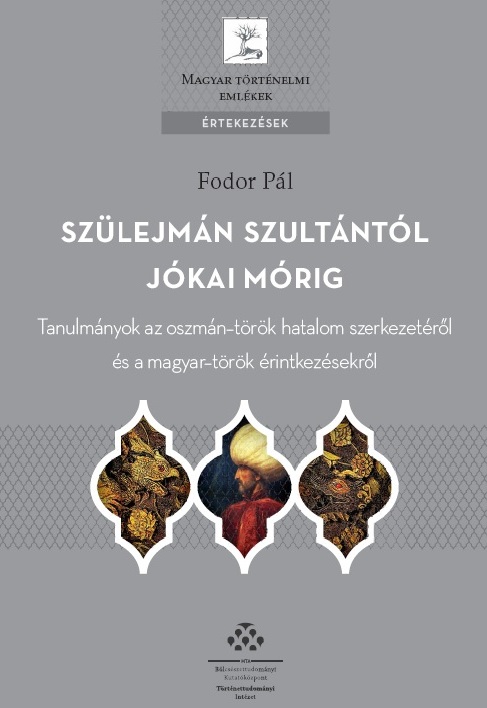 The RCH Institute of History has published the newest volume of the serial Monumenta Hungariae Historica entitled "From Sultan Süleyman to Mór Jókai. Studies in the Ottoman structure of power and the Hungarian–Turkish connections" (Budapest, 2014. [Magyar Történelmi Emlékek- Értekezések. 10.]) by Pál Fodor, Acting Director General of the RCH (and Director of the Institute of History).
The RCH Institute of History has published the newest volume of the serial Monumenta Hungariae Historica entitled "From Sultan Süleyman to Mór Jókai. Studies in the Ottoman structure of power and the Hungarian–Turkish connections" (Budapest, 2014. [Magyar Történelmi Emlékek- Értekezések. 10.]) by Pál Fodor, Acting Director General of the RCH (and Director of the Institute of History).
The volume contains the turcologist Fodor’s scholarly essays written in the 2000s. The essays are arranged in thematic chapters, and this way they provide a wide insight into the operational techniques, cohesive forces, drives to wars of the power structure and state mechanism of the Ottoman Empire, which – in spite of its seemingly slow adaptability – had remarkable renewal capacity and had a great effect on Hungarian life.
In the first chapter (The Ottoman-Turkish Elite) we can read about Sultan Süleyman, who conquered Hungary; about the political role of the Sultan’s harem; about the Sultan’s favourite consort then later wife Hürrem, who stirred in the life of the empire; and about other important figures of the reign of Süleyman. The second chapter (Identity and Ideology) draws a picture about the imperial and the later (19–20th century) identity and ideology of the Turkish elite. Chapter 3 (The State: Institutions and Minorities) provides insight into the operational mechanism of the state structure and the special situation of the minorities. Chapter 4 (War against Hungary) is an overview on the process of the Ottoman conquer of Hungary, showing the efforts to defend the country of the Hungarian Kingdom, too, and the international background of the war. Chapter 5 (Hungarians and Turkish) presents the knowledge of the Hungarians according to the Turks, and the influence of the Turks on the Hungarian mentality, the “eastern elements” of the “Hungarian mind”.
The new research results – even in international standards as well – are presented in a lively, readable style, which makes the volume useful for not only the experts but also for the interested public.
Issues can be bought or ordered from the Institute (postal address: MTA BTK Történettudományi Intézet, 1014 Budapest, Úri u. 53.; telephone: 36/1/224-6700/624; e-mail address:.)


